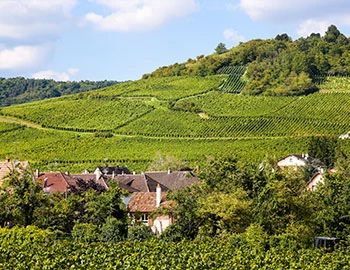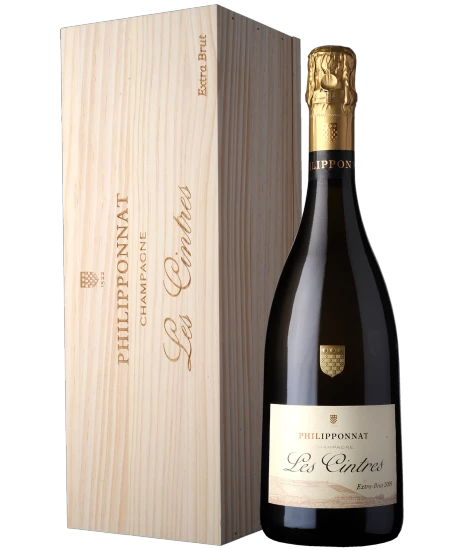
Philipponnat Les Cintres Extra Brut 2009
AOC Champagne, 750 ml

| Grape variety: | Pinot noir |
| Producer: | Champagne Philipponnat |
| Origin: | France / Champagne |
| Other vintages: |
Description
A very spicy nose combining notes of musk, nutmeg, cloves, black pepper and apricot kernel. Mineral and fresh, with notes of ripe white peach and dark fruit, such as black Morello cherry. The finish is complex and intense with notes of grilled grain and malt. Les Cintres is one of a trio of single plot cuvées, of which 2009 is the third vintage after 2006 and 2008. The cuvée comes from vines grown on hillsides, which are the most exposed to sun and the oldest (up to 70 years of age), at the heart of this exceptional vineyard.
Celebrate the Art of Sabring!
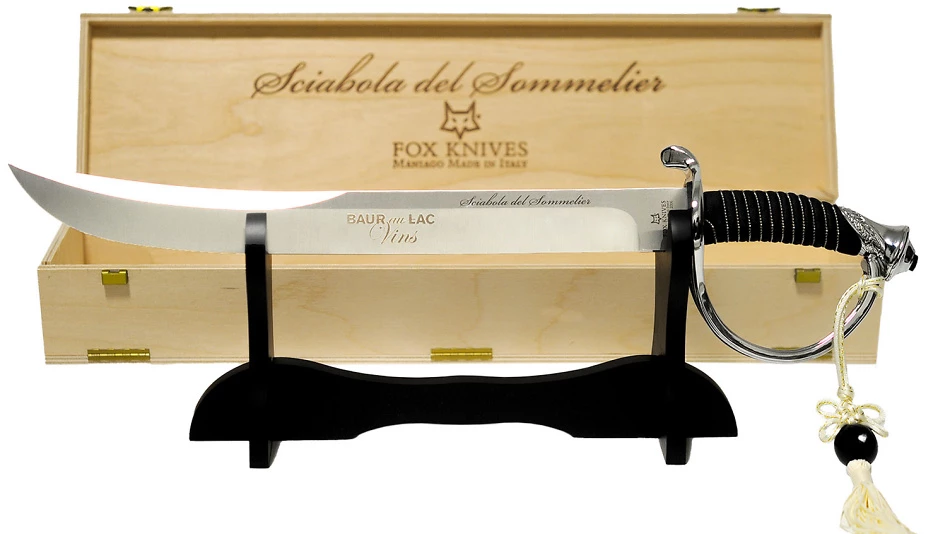
With its elegant design, this champagne sabre is not only an impressive eye-catcher at any celebration and an indispensable tool for stylish sabering, but also the perfect gift for all passionate sparkling wine lovers.
Attributes
| Origin: | France / Champagne |
| Grape variety: | Pinot noir |
| Ripening potential: | 5 to 15 years |
| Drinking temperature: | 10 to 12 °C |
| Food Pairing: | Apéro riche, Fish terrine, Sushi, Sashimi, Ceviche, Vitello tonnato, Wild fowl |
| Vinification: | bottle fermentation |
| Harvest: | hand-picking, strict selection |
| Maturation: | on the yeast |
| Maturation duration: | 120 months |
| Volume: | 12.0 % |
| Note: | Contains sulphites |
Champagne Philipponnat
Journeying across Champagne you will inevitably come across familiar sounding names. Grand names behind which often hide grand houses that carry on their business at the global level.
It's a bit different with Charles Philipponnat. His champagne isn't well known to everyone, but it is one of the most exclusive. It was in the 17th century that the Philipponnat family moved to Mareuil-sur-AŸ in the heart of Champagne. In 1910 Pierre and Auguste Philipponnat bought a splendid winery carved 20 metres deep into the chalk bed. And today Charles Philipponnat welcomes guests into 'his' stately home with the finesse, charm and hospitality that characterise it.
Not far away at the edge of the village is the Clos des Goisses, the steepest slope in the area, facing due south and, what's more, the only 'Clos' in the whole of Champagne. Those 5.5 exceptional hectares grow mainly Pinot Noir and Chardonnay, which give rise to a unique vintage champagne. Production is limited, but that does not prevent it from being a worldwide success. Indeed, this champagne enjoys a top tier reputation at the great tables of the world. And the Charles Philipponnat name carries across equally well to all the other house styles, be it the Royal Reserve, full of character, the elegant rosé or the very fine blanc de blancs.
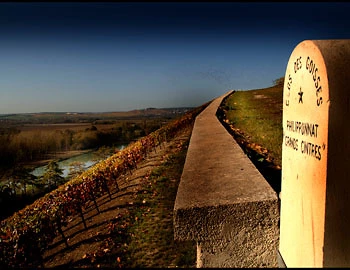
Pinot noir
Blueprint of the terroir
No other variety expresses its terroir as precisely as Pinot noir. It is a sensitive, fragile grape. But when it succeeds, it gives the world some of its very greatest wine plants. It especially excels in Burgundy, where it has been cultivated for at least 700 years. Even in the middle ages, it was considered so precious that it was kept separate from other grapes so as to not diminish its value. The finest examples are delicate and fragrant with aromas of cherries and red berries. With maturity, notes of forest floor, leather and truffles enter as well. An irresistible fruity sweetness still shines through, even after several decades. The Pinot noir does well in cool locations: in Switzerland and in Germany, where it is known as Blauburgunder and Spätburgunder respectively; in Alsace and in South Tyrol, in Oregon, New Zealand and Tasmania. Not least, it yields fantastic champagnes. It is a wonderful culinary companion. With its soft tannins and charming bouquet, it meshes with everything, from Güggeli and cheeses to fried fish.
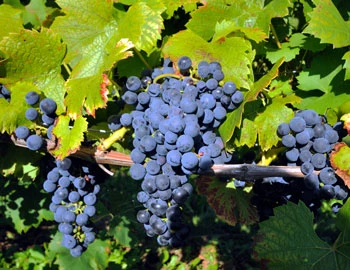
France
France – Philosophy in a bottle
According to French philosophy, wine should be an expression of the soil and climate. They use the word “terroir” to describe this. Terroir makes every wine different, and many especially good. French wine is regarded worldwide as an expression of cultural perfection. The French believe that humans are responsible for the quality of the berries, the vine variety for their character, and nature for the quantity. This philosophy can be expressed succinctly as: “the truth is the vineyard, not the man.”
